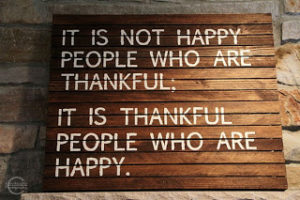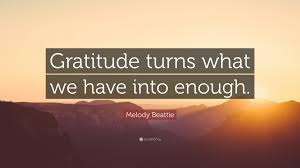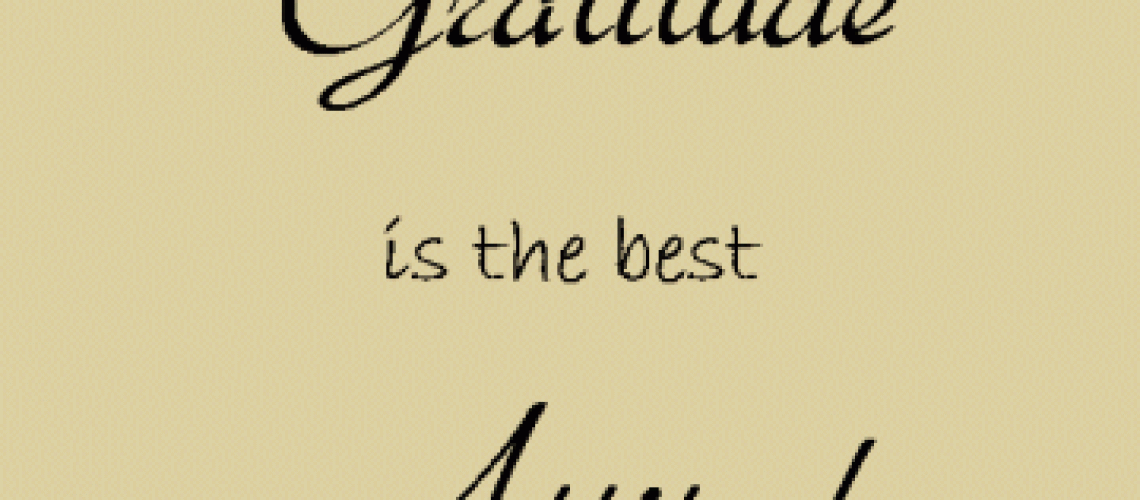“The saddest of all hearts is one without gratitude.”
 Is there an antidote to ingratitude?
Is there an antidote to ingratitude?
Gratitude is born of humility, for it acknowledges the giftedness of the creation and the benevolence of the Creator. This recognition gives birth to acts marked by attention and responsibility. Ingratitude, on the other hand, is marked by hubris, which denies the gift, and this always leads to inattention, irresponsibility, and abuse.
I am very sure that the whole world knows what is happening in Australia. Since the fire season began in late July, Australia has been ravaged by wildfires that have claimed lives and destroyed homes. Towns and natural habitats have been destroyed, as people find themselves now homeless while several wildlife populations are now suffering too. There seems to be no end in sight to the catastrophic wildfires. One study estimated that 480 million animals in NSW may have been killed already, either during blazes or afterward from lack of food, water and shelter and increased risk of predation.
 Unlike people, animals never forget to thank us for the love and care we give them. One such example is the above evocative picture showing a rescued kangaroo hugging humans in gratitude and appreciation for its rescue. Yes, let the animals show us, humans, the meaning of gratitude. It is unfortunate that we humans often forget about the importance of gratitude. It is a thankful appreciation for what we receive, a way to acknowledge the goodness in our lives.
Unlike people, animals never forget to thank us for the love and care we give them. One such example is the above evocative picture showing a rescued kangaroo hugging humans in gratitude and appreciation for its rescue. Yes, let the animals show us, humans, the meaning of gratitude. It is unfortunate that we humans often forget about the importance of gratitude. It is a thankful appreciation for what we receive, a way to acknowledge the goodness in our lives.
Gratitude is confirmed to be linked to happiness, as it boosts positivity, builds strong relationships, relishes good experiences, and improves health. So, how many of us are grateful in our lives? Many people are constantly complaining about what they do not have instead of appreciating what they are already blessed in their lives. We live in a nation where everyone is in the pursuit of happiness. Each individual has his or her own path on this journey. For some, the search begins in books; for others, it comes through service. But perhaps the most popular form of seeking happiness is through the accumulation of “things.” Materialism, though, is bought at a cost. A society that feels entitled to what it receives does not adequately express gratitude. Seen through the lens of buying and selling, relationships, as well as things, are viewed as disposable, and gratitude cannot survive this materialistic onslaught. The lack of gratitude is contagious and is passed from one generation to the next.
But perhaps the most popular form of seeking happiness is through the accumulation of “things.” Materialism, though, is bought at a cost. A society that feels entitled to what it receives does not adequately express gratitude. Seen through the lens of buying and selling, relationships, as well as things, are viewed as disposable, and gratitude cannot survive this materialistic onslaught. The lack of gratitude is contagious and is passed from one generation to the next.
Humility is key to gratitude because living humbly is the truest approach to life. Humble people are grounded in the truth that they need others. We all do. We are not self-sufficient. We did not create ourselves. We depend on family, friends, our pets and God to provide what we cannot provide for ourselves. Seeing with grateful eyes requires that we see the web of interconnection in which we alternate between being givers and receivers. The humble person says that life is a gift to be grateful for, not a right to be claimed.
Humility is profoundly countercultural. It does not come easily or naturally to most of us. It requires the selfless focus on others rather than self. Thinking about oneself is natural; humility is unnatural. Perhaps this is why gratitude is counterintuitive. It goes against our natural inclinations. We want to take credit for the good that we encounter. This self-serving bias is the adult derivative of childhood  egocentricity.
egocentricity.
Embracing gratitude and humility is spiritually and psychologically liberating. Gratitude is the recognition that life owes me nothing and all the good I have is a gift from God. Recognizing that everything good in life is ultimately a gift is a fundamental truth of reality. Humility makes that recognition possible. The humble person says, “How can I not be filled with overflowing gratitude for all the good in my life that I’ve done nothing to merit?” The realization that all that I have is a gift, is freeing. Freedom is the very foundation upon which gratitude is based. True gifts are freely given and require no response. As in the parable of the healing of the ten lepers, Jesus was free to withhold the gift of healing but He did not and he did not demand the other nine who were healed, return to express gratitude. However, the one who did return exercised his freedom as well. The greater good begins with you.
Gratitude sets us free.

#whatgoodisgratitude #gratitude
